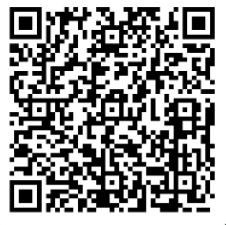Geography
Intent
Our aim at Linby cum Papplewick Primary School is to inspire pupils’ curiosity, interest and appreciation for the world in which they live in. Therefore, we aim to equip pupils with the geographical knowledge to develop their skills through studies of places, people and natural and human environments.
As geographers, pupils are exposed to a rich and balanced curriculum that provides them with key knowledge and new vocabulary. As pupils progress through the school, they will develop an insight into the links between physical and human processes and how landscapes and environments have changed and continue to change over time. They will learn about the impact humans’ use of natural resources has had on the planet and what can be done to sustain the Earth’s natural resources. In addition to this, they will study the changes that have occurred due to climate change and the challenges we face today and in the future.
The geography curriculum encourages pupils to ask questions, develop critical thinking skills, and layer a deeper understanding of complex concepts as the course navigates through the curriculum.
Fieldwork enquiries enable students to apply their skills, knowledge and understanding within both human and physical Geography.
Geography has many links to other areas of the curriculum from the physical process in Science, creativity in English to the quantitate skills of Mathematics. Pupils are able to use these connections to excel in the wider world.
Implementation
The curriculum is sequenced in long and medium term plans to help pupils build cumulative knowledge towards agreed milestones. Geography is taught every term throughout the year, so that pupils can achieve depth in their learning. Opportunities for children to be exposed to and use higher level vocabulary are mapped out, displayed and referred to regularly in lessons. Lessons incorporate various teaching strategies from independent tasks to paired and group work, including practical hands-on, computer-based and collaborative activities, both in and out of the classroom.
As part of the planning process, teachers will need to refer to the following documents:
- The National Curriculum
- Geography Progression of Knowledge and Skills
- Knowledge Organisers
Impact
Our geography curriculum offers high quality and well-planned lessons, which are progressive in nature. Geographical questioning helps pupils to gain a coherent knowledge and understanding of the world and its people. Through our curriculum, pupils learn to think critically and ask perceptive questions. In order to ensure our aims and intent have been met, we scrutinise what children have learnt through:
- Assessing pupil’s knowledge of key component learning as set out within schemes of work.
- Assessing pupil’s understanding of topic linked vocabulary.
- Interviewing the pupils about their learning (pupil voice conversations).
- Moderation and scrutiny of pupil’s books and professional dialogue between teachers to assess the quality of children’s learning.
- Sharing good practice in staff meetings.
- Marking of written work in books against the school’s marking policy.
Pupils will develop a love and respect for the world around them with aspirations to experience places first-hand. Regular educational visits will help shine a light a world beyond Linby and provide further relevant and contextual learning.

